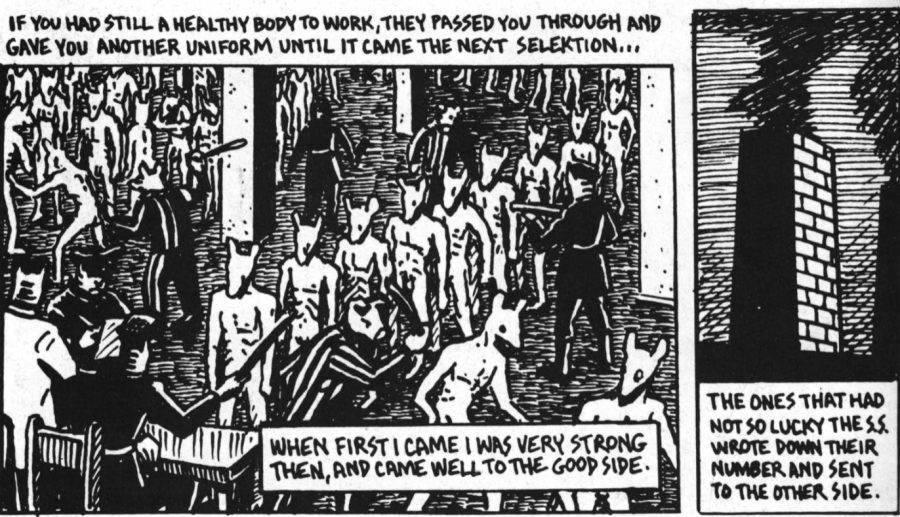Vulgar or educational: why are books being banned?
Recently, books with titles such as “Gender Equality,” “LGBTQ Rights,” “Black Lives Matter: From Hashtage to the Streets,” and “Safe Sex 101: An Overview for Teens” have been submitted for bans–in some places successfully–in counties and school districts around the country. These books are labeled as “damaging” for children to read in school.
Headlines increased when Art Spiegelman’s Maus, the most purchased and taught children’s book on the Holocaust, was banned in McMinn County, Tennessee. “One of the most important roles of an elected board of education is to reflect the values of the community it serves,” said a statement from the McMinn county school board. Subsequently, on Holocaust Remembrance Day, the school board banned the book due to “nudity,” in a 10-0 vote.
In the McMinn County meeting in which “Maus” was banned, the board members and parents expressed a fear of ‘vulgar’ swearing and open sexuality. One McMinn County school board member, Mike Cochrain, sees this as part of an “epidemic.” “My problem is, it looks like the entire curriculum is developed to normalize sexuality,” said Cochrain, “if I was trying to indoctrinate somebody’s kids, this is how I would do it.”
Cochrain shared a common sentiment. Every member of the school board, even those who supported learning about the Holocaust, objected to scenes involving swearing, stripped dead bodies and many objected to biographical violence being pictured. “It shows people hanging,” said McMinn County School Board Member Tony Allman, “it shows them killing kids. Why does the educational system promote this kind of stuff?”
Book banning is not a new issue. The first book banning in America dates back to the puritan banning of The New English Canaan which was initially published in 1637. Although the trend is not new, school districts have seen a significant uptick of book bans in recent years.
“A good library has stories and covers information on a variety of experiences. It’s especially important for young people to read stories that are about them. And to read stories that are not about them,” said Urban School Librarian, Sarah Levin. “So that really helps develop empathy, which is a skill that is otherwise kind of difficult to teach, but when you read you develop empathy.”
In 2017, 416 different books were challenged or banned throughout the United States. But, from January 25th to 28th of 2022 alone, well over 100 books were banned and nearly 1,000 were challenged, according to the Austin American Statesman. Texas State Representative Matt Krause, submitted a 16-page list of books he would like to see banned in the state. That list of 850 books features 350 non-fiction books, 120 sexual education books, 76 books on race and racial justice issues, and 530 books on LGBTQ+ stories and issues.
Matt Krause is not alone in his efforts. The group “Moms of Liberty” has amassed more than 70,000 members throughout 165 chapters in 33 states. The group has been responsible for the vast majority of books challenged in the last two years. The Moms of Liberty are one of many groups that have challenged books on mass throughout the country. Founded in January 2021, the countless banned books prior to this year were done by many different groups. Additionally, this is not a geographically isolated event. Within a week, the Moms of Liberty helped ban books in school districts in Minnesota, Texas, South Carolina, North Carolina, Virginia, Missouri, Mississippi, Pennsylvania, Tennessee, Washington, Illinois, Florida and Montana.
The ACLU released a statement following the letter from Representative Krause. “The freedom to read… calls attention to the wealth of creative expression that is stifled when books can be forbidden from library shelves. We believe in an educated citizenry and a society where ideas are openly disseminated, discussed, and debated,” said the ACLU website.
Cochrain, McMinn County, the Moms of Liberty and Representative Krause are all reflections of a larger fear of information. Levin believes that the current fears of information play a big role. “I think our current political environment is maybe encouraging people to have a distrust or a fear of information, whether that be factual information or fictional stories,” said Levin.












